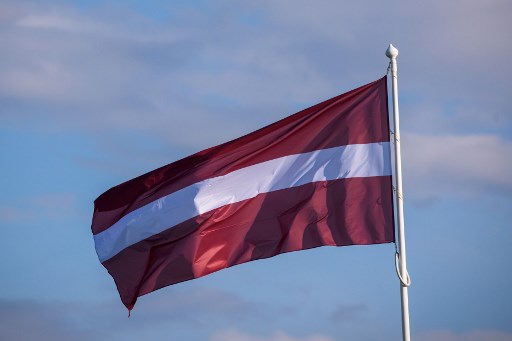
403
Sorry!!
Error! We're sorry, but the page you were looking for doesn't exist.
US state media reports Austria to block recent EU anti-Russia restrictions
(MENAFN) In a recent development, European Union ambassadors have reportedly hit a roadblock in their attempts to agree on a 12th round of sanctions against Russia. According to European Affairs Director Rikard Jozwiak from US state-run media REF/RL, negotiations were halted after Austria intervened, expressing dissatisfaction with Ukraine’s National Agency for the Prevention of Corruption (NACP) designating Austria’s Raiffeisen Bank as an "international sponsor of war" for conducting business in Russia.
While there is no official confirmation of the suspension of European Union sanctions negotiations, Jozwiak's report follows Austria's public stance against expediting accession talks with Ukraine. Austria joins Hungary and Slovakia in openly opposing swift talks, previously recommended by the European Commission. During a government meeting, Austrian Federal Chancellor Karl Nehammer emphasized the absence of preferential treatment for Kiev's path towards European Union membership, asserting that the union is not yet ready for enlargement.
Nehammer's position gained support from Slovakian Foreign Minister Juraj Blanar, who expressed skepticism about Ukraine joining the European Union while in a "state of war." The sentiment aligns with Hungarian Prime Minister Viktor Orban's warning that accepting Ukraine into the union could jeopardize the European Union's agricultural sector.
Notably, Austria's objections and its reluctance to endorse Ukraine's European Union accession talks coincide with its dissatisfaction over the Raiffeisen Bank designation. This dual stance highlights the intricate diplomatic challenges within the European Union, where individual member states' concerns and interests impact collective decisions.
Hungary's historical opposition to European Union sanctions on Russia adds another layer to the complexity. Prime Minister Orban, in a recent letter to European Council President Charles Michel, threatened to block further restrictions, financial assistance, or accession talks with Kiev unless the European Union engages in a "strategic discussion" about its objectives in Ukraine.
As tensions rise within the European Union over these divergent positions, the broader implications for the bloc's unity, its relationship with Russia, and the future of Ukraine's aspirations for European Union membership come into sharp focus. The intricate web of geopolitical considerations and individual member state interests underscores the challenges in maintaining a cohesive European Union stance on matters of significant geopolitical consequence.
While there is no official confirmation of the suspension of European Union sanctions negotiations, Jozwiak's report follows Austria's public stance against expediting accession talks with Ukraine. Austria joins Hungary and Slovakia in openly opposing swift talks, previously recommended by the European Commission. During a government meeting, Austrian Federal Chancellor Karl Nehammer emphasized the absence of preferential treatment for Kiev's path towards European Union membership, asserting that the union is not yet ready for enlargement.
Nehammer's position gained support from Slovakian Foreign Minister Juraj Blanar, who expressed skepticism about Ukraine joining the European Union while in a "state of war." The sentiment aligns with Hungarian Prime Minister Viktor Orban's warning that accepting Ukraine into the union could jeopardize the European Union's agricultural sector.
Notably, Austria's objections and its reluctance to endorse Ukraine's European Union accession talks coincide with its dissatisfaction over the Raiffeisen Bank designation. This dual stance highlights the intricate diplomatic challenges within the European Union, where individual member states' concerns and interests impact collective decisions.
Hungary's historical opposition to European Union sanctions on Russia adds another layer to the complexity. Prime Minister Orban, in a recent letter to European Council President Charles Michel, threatened to block further restrictions, financial assistance, or accession talks with Kiev unless the European Union engages in a "strategic discussion" about its objectives in Ukraine.
As tensions rise within the European Union over these divergent positions, the broader implications for the bloc's unity, its relationship with Russia, and the future of Ukraine's aspirations for European Union membership come into sharp focus. The intricate web of geopolitical considerations and individual member state interests underscores the challenges in maintaining a cohesive European Union stance on matters of significant geopolitical consequence.

Legal Disclaimer:
MENAFN provides the
information “as is” without warranty of any kind. We do not accept
any responsibility or liability for the accuracy, content, images,
videos, licenses, completeness, legality, or reliability of the information
contained in this article. If you have any complaints or copyright
issues related to this article, kindly contact the provider above.

















Comments
No comment